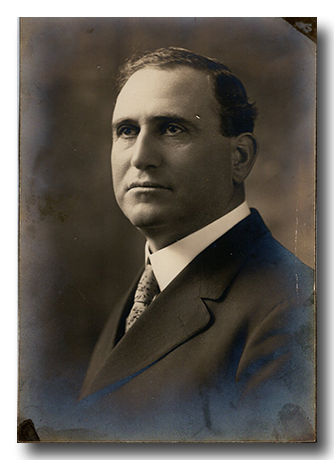| Prologue. Clement Brumbaugh’s life story, from humble rural background to best of lives story. Born in 1863, the beginning of the Civil War, he was raised by a widowed mother. From poverty, Greenville High School, Harvard class of 1894, Minority Leader Ohio House of Representatives, five terms United States Congress, William Jennings Bryan follower and Woodrow Wilson Democrat. |
 |
|---|
Clement Brumbaugh
I) Early Years. He was born in 1863 at the beginning of the Civil War. He had two older brothers, Arcanum, Ohio farmers and a sister. His younger brother, W. D. Brumbaugh, my Grandfather. His father died shortly after the Civil War. His impoverished mother, Elizabeth Brumbaugh, raised the family in a small farm house east of Greenville. He and W. D. worked as farm laborers and then on to Greenville High School. From the earliest days, a keen intellect and a highly motivated man. (Like Fred Coppock and John Sweeterman, he grew up in a large rural family and charted his own destiny.)
II) Clement's Career. (Neither my father, nor my Grandmother Brumbaugh said much about Clement. There are a few family stories.) He was highly respected in Columbus Ohio. He'd been a protégé of Gov. Cox, presidential candidate and owner of the Dayton Daily News. When I was in Columbus, the Brumbaugh name had significance. I'm sure when Dad went to Ohio State Law School and enjoyed so many close Columbus relationships, the Clement connection helped. (Must - read attached materials to understand the scope of his career.)
III) A Few Stories.
A). Harvard. Celia Clevenger, a good friend in Washington, asked me if I had a relative in her grandfather's class, the class of 1894 Harvard. She said there were only 18 members and that her grandfather, from a wealthy New York family, was a classmate. Clement, later circa 1914, gave a speech at the New York Harvard Club, entitled, Poor Boy goes to Rich Boy's school. He was the only "not rich kid" in the class. "Diversity"
B). After Harvard, he taught for four years (1894 to 1898) at the black college, Howard University in Washington DC.
C). Back to Greenville. Superintendent of Schools, Greenville. ( He helped his brother, WD, become county surveyor, attorney and later chairman of the County Democratic Chairman.
D). At the 1896 Democratic National Convention, William Jennings Bryan, delivered his “Cross of Gold" speech. Early "liberal" trying to “regulate” the capitalists. In 1898, Clement met him at the Greenville train station and escorted him on a political tour to Richmond and Indianapolis, Indiana. He was nomintated three times as the Democratic candidate for president. Clement was a devoted follower.
E). Political Career. Incredible, that in his first years in Columbus, he became Minority Leader of the Democratic Party. After leaving the state legislature in 1904, it's unclear what he did until he was elected to United States Congress in 1913. (His distinguished career is covered by the extensive literature attached. Of special note, he was a solid Woodrow Wilson Democrat. Like Wilson, he wanted more “economic egalitarianism”; today a moderate but liberal Democrat. He also was a strident opponent to entering World War I and as noted, a champion of Philippine independence.)
F). Most Important Family Story. "The China Connection". Clement had been a major sponsor of Philippine independence. He was invited with my Grandfather Brumbaugh to visit the Philippines. On their trip, according to Dad, they traveled to China to confer with Sun Yat-sen. Sun Yat-sen, leader of the 1910 revolution, had been deposed, but was given the government post that was in charge of interior affairs, building bridges, railroads and highways. Clement held a like position in the U.S. Congress as Chairman of the Committee on Railways and Canals. Because of this trip, Dad had a long-term interest in China, which resulted in the incredible visit in 1949 of Wellington Koo to Greenville. (See---). That, in turn, became my motivation for writing my senior thesis on Japan - China relations.
G). Personal life. So little known about it. Not sure that he was married, although he may have married in the last year or so of his life. In 1920, he was ill and did not run for Congress. He died a year later. (There's a a wonderful monument in the Greenville Cemetery for Clement Brumbaugh, only yards away from Fred Coppock, and where I intend to be buried).
| Photogallery | Obituary |
|---|